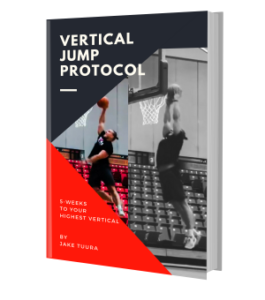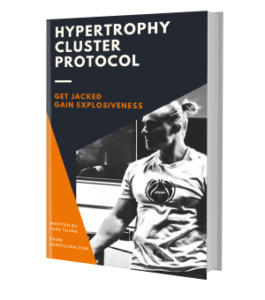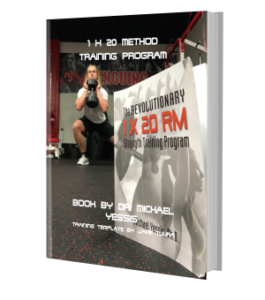Fowler Fitness Principles:
- “That’s the biggest thing that I preach all the time… if you have the principles down, everything pretty much comes easy after that.”
- Holistic: “Accounting for everything in training that needs to be accounted for to be successful.”
- “There is a time and place for anecdotes and personal experience… but ultimately, you need to start with science.”
Where we get it wrong in S&C:
Wasting time with low stimulus training.
- “Athletes have a limited amount of time to spend in the gym.”
- “Most people’s training is an opportunity cost… most of the things that people are doing in their training shouldn’t be in there.”
- Snap Downs. “How is that a good use of your time?”
- Pallof Press. “The stimulus that you’re getting from that probably doesn’t even remotely compare to something like a heavy wood chop or a flywheel rotation.”
- Speed Ladders. “It trains the neuromuscular system, the stretch shortening cycle… and I could name probably 20 other things that train those systems 10 times more effectively.”
- “As long as it involves some type of movement, you’ll find somebody trying to justify it.”
We’re not holding people accountable.
- People getting away with guru-ism.
- Injury Prevention as a catch phrase. “Nobody ever says anything about it… We’re not accurate. We just throws things out there arbitrarily.”
- Asymmetries or left-right imbalances. “It’s not really injury predictive.”
Ideas on Specificity:
- Too much volume of specific tasks. “Maybe sometimes we need anti-specificity.” “We need to be feeding them what they’re not getting.”
- How long can general training work? “It can work a lot longer than most people think that it can. Most people haven’t pushed general development or strength to the level that they need to yet.”
- “Sometimes we focus on specifics too much.” We don’t get the full general development.
Exercise Selection:
- Rear Delt Exercise. “You only have time for one exercise.” “I’m not gonna do a band pull apart.” “We’re gonna be doing a side lying delt raise.” Strength curve will stimulate the most amount of muscle possible with the least amount of volume.
- “You can do a lot less by choosing exercises that are stimulating what you want a little more effectively.”
The need for Variation:
- You develop skills smoother. “Nervous system fills in those grey areas where technique starts to break down.”
- Monotony. “The more I practice something, the more it grows stale, and the more I burnout.”
- Minimum Effective Dose. “Variation is a good segue into that.”
- Using Variation but staying Specific. “We’re always varying the times, intensity ranges, the volume… but we’re always doing something similar.”
Health before Performance:
- Determining health without Tests/Assessments. “I kinda base on observation and what they’re telling me.
- Keep quality of performance high to maintain long-term health. “What’s the heaviest you can go with very little breakdown.”
- “One of the biggest killers of progress is just being beat up.”
Why we should use isolation exercises:
- “You’re never fully isolating something.” Bicep curl gets the wrist flexors, fingers, and shoulders (isometrically to stabilize).
- “Isolation exercises as more of emphasizing something rather than fully isolating it.”
- The argument against isolation doesn’t really make sense. “You’re fundamentally doing that (isolation) by being in a gym and by engaging in forms of exercise other than your sport.”
Reducing injuries:
- “Holistic.”
- “It’s never gonna come down to one specific thing.”
- “You always have to zoom in and then you have to zoom back out.”
Instagram: https://www.instagram.com/fowler_fitness_spt/
Twitter: https://twitter.com/fowler_fitness1?lang=en
Website: http://fowlerfitness.us/


